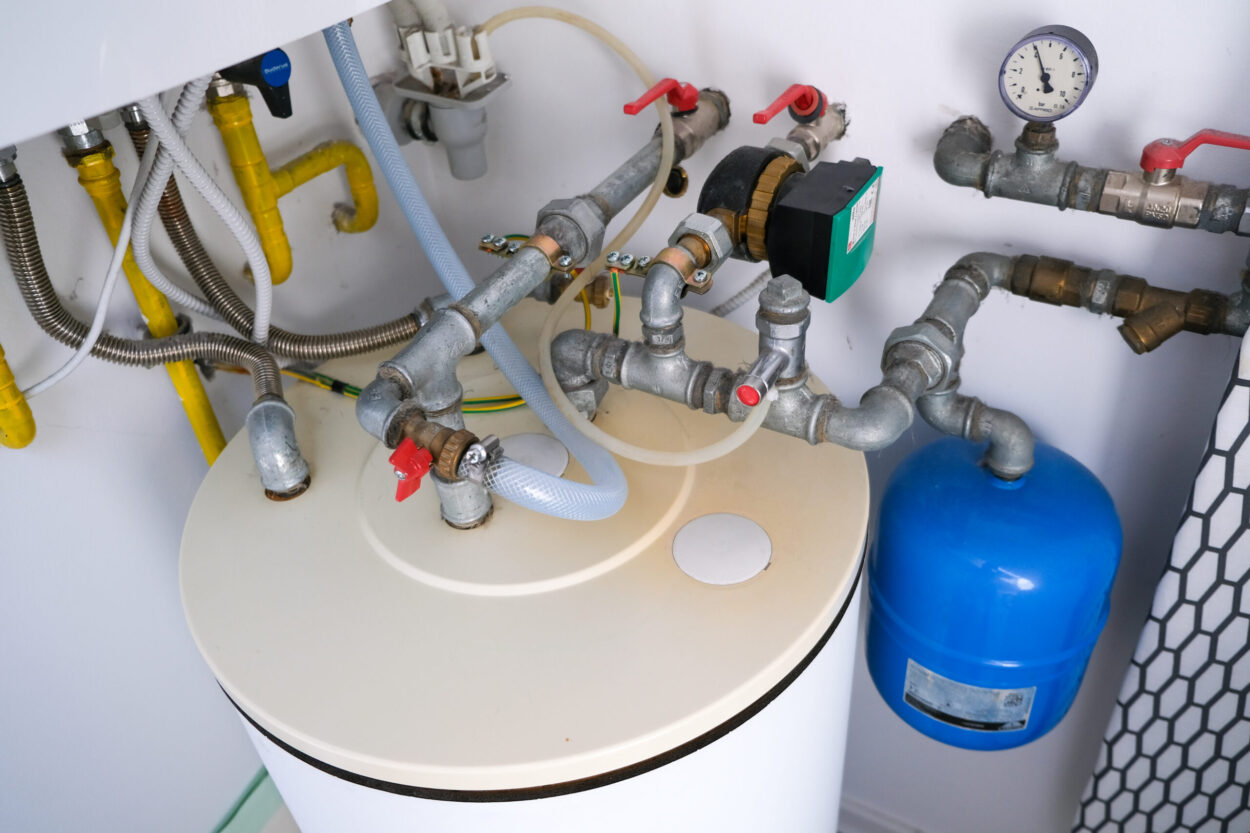Alternative Energy
How to Choose the Right Water Heater for Your Home

Choosing the right water heater for your home is an important decision that impacts your comfort, energy efficiency, and utility bills. With so many options available, it can be overwhelming to determine which type is best suited for your needs. Below we will look through the key factors to consider, so you can make an informed choice and enjoy hot water without any hassle.
Understand Different Types of Water Heaters
Storage Tank Water Heaters
Storage tank water heaters are the most common type. They consist of an insulated tank that heats and stores water until it’s needed. These units vary in size, typically ranging from 20 to 80 gallons. One advantage is the constant supply of hot water, but they can be less energy-efficient due to heat loss from the tank.
Tankless (On-Demand) Water Heaters
Tankless water heaters provide hot water only when needed, bypassing the storage tank. These units can be more energy-efficient, as they heat water on demand. However, they may have limitations on the flow rate, especially if multiple fixtures are used simultaneously. According to the U.S. Department of Energy, tankless heaters can be 24-34% more energy-efficient than traditional models for homes that use 41 gallons or less of hot water daily.
Heat Pump Water Heaters
Heat pump water heaters, also known as hybrid water heaters, use electricity to move heat from one place to another instead of generating heat directly. This makes them highly energy-efficient. They work best in warm climates and require a significant amount of space. The EPA highlights that heat pump water heaters can reduce electricity use by up to 50% compared to conventional electric resistance water heaters.
Solar Water Heaters
Solar water heaters use solar panels to capture energy from the sun to heat water. These systems can significantly reduce utility bills but depend on adequate sunlight and require a higher initial investment. They are an excellent option for eco-conscious homeowners looking to reduce their carbon footprint.
Consider Fuel Type and Availability
The type of fuel you choose for your water heater can affect its energy efficiency and cost. Options include electricity, natural gas, propane, oil, and solar energy. Each fuel type has its pros and cons:
- Electric water heaters are widely available and easy to install but can be more expensive to operate.
- Natural gas and propane water heaters typically have lower operating costs but may require a gas line and proper ventilation.
- Oil water heaters are less common but can be efficient in certain regions.
- Solar water heaters offer renewable energy benefits but rely on consistent sunlight.
Evaluate Energy Efficiency
Energy efficiency is a key factor to consider when choosing a water heater. Look for units with the ENERGY STAR label, which indicates they meet strict energy efficiency guidelines set by the U.S. Environmental Protection Agency. Higher efficiency can lead to significant savings on your utility bills over time.
Additionally, check the Energy Factor (EF) rating. The higher the EF, the more efficient the water heater. For example, a tankless water heater with an EF rating of 0.95 is more efficient than one with an EF rating of 0.80.
Calculate the Size You Need
Choosing the right size water heater ensures you have enough hot water without wasting energy. For storage tank water heaters, consider the tank’s capacity and the First Hour Rating (FHR), which measures how much hot water the heater can supply in an hour.
For tankless water heaters, consider the flow rate, measured in gallons per minute (GPM), and the temperature rise needed. For instance, if you need to run a shower (2.5 GPM) and a dishwasher (1.5 GPM) simultaneously, you’ll need a unit with at least a 4 GPM flow rate.
Assess Installation and Maintenance Requirements
Installation costs and requirements can vary significantly based on the type of water heater. Traditional storage tank heaters are usually easier and cheaper to install, while tankless and solar heaters may require more complex installation and higher upfront costs.
Consider the maintenance needs as well. For instance, tankless water heaters require regular descaling, especially in areas with hard water, whereas storage tank heaters need periodic tank flushing to remove sediment buildup.
Explore Costs and Budget
Finally, factor in both the initial purchase price and long-term operating costs. While high-efficiency models and renewable energy options like solar heaters may have higher upfront costs, they can offer substantial savings on energy bills and potential tax incentives or rebates.
Evaluate your budget, taking into account the installation, maintenance, and potential energy savings over the unit’s lifespan. Investing in a more expensive but efficient model may be cost-effective in the long run.
Conclusion
Choosing the right water heater for your home involves considering various factors, including the type, fuel availability, energy efficiency, size, installation, and cost. By carefully evaluating your needs and options, you can find a unit that provides reliable hot water and enhances your home’s energy efficiency.
-

 Press Release5 days ago
Press Release5 days agoClinical Trials Market Set for Robust Growth, Driven by Drug Development Surge and Digital Innovation
-

 Business7 days ago
Business7 days agoHow Managed IT Solutions Help Small Teams Compete at Enterprise Scale
-

 Press Release6 days ago
Press Release6 days agoGreen Bio Chemicals Market Poised for Sustainable Growth amidst Global Shift to Eco-Friendly Alternatives by 2035
-

 Press Release6 days ago
Press Release6 days agoFill-Finish Pharmaceutical Contract Manufacturing Market Expected to Flourish Amid Biopharmaceutical Boom and Global Outsourcing Trend by 2035
-

 Press Release6 days ago
Press Release6 days agoIndustrial Boiler Market Expected to Surpass USD 24.4 Billion by 2035 Amid Growing Demand for Energy Efficiency and Industrialization
-

 Press Release6 days ago
Press Release6 days agoPreventive Vaccines Market to Witness Strong Growth by 2035
-

 Press Release6 days ago
Press Release6 days agoPet Food Nutraceutical Market Set for Robust Expansion Amid Rising Demand for Pet Wellness by 2035
-

 Press Release5 days ago
Press Release5 days agoPediatric Vaccines Market: Safeguarding Futures, Driving Growth










